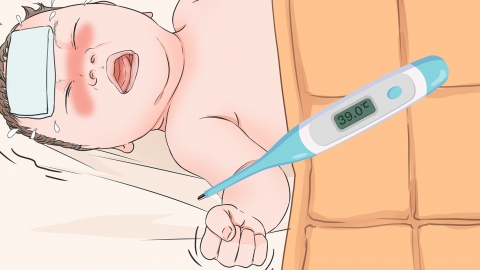How to handle a child's fever caused by food accumulation
Febrile illness refers to fever. Fever caused by food accumulation in children can generally be managed through dietary adjustments, abdominal massage, physical cooling methods, hydration, and consumption of digestion-aiding ingredients to help alleviate symptoms. If concerns persist, it is recommended to seek medical advice promptly. Detailed methods are as follows:

1. Dietary adjustment: Temporarily reduce food intake, avoid greasy, raw, cold, or sweet foods that are difficult to digest, and choose bland and easily digestible options such as millet porridge, well-cooked noodles, and vegetable puree. This helps reduce the burden on the gastrointestinal tract and allows the digestive system to rest.
2. Abdominal massage: Centering on the child's navel, gently massage the abdomen clockwise with the palm. Each session should last 5–10 minutes, performed 2–3 times daily. This can stimulate gastrointestinal motility, aid digestion, and relieve abdominal discomfort.
3. Physical cooling: If body temperature is below 38.5 °C, reduce clothing, apply warm water sponging, or use a cold compress on the forehead to lower the temperature. If temperature exceeds 38.5 °C, fever-reducing medication should be taken under a doctor's guidance, along with physical cooling methods to assist in reducing the fever.
4. Hydration: Encourage the child to drink more warm water, which promotes metabolism and intestinal motility, helps eliminate waste from accumulated food, prevents dehydration caused by fever, and maintains normal bodily functions.
5. Digestion-aiding ingredients: Appropriately consume foods like hawthorn water, apple puree, and yam porridge, which aid digestion. Hawthorn helps stimulate appetite and aid digestion, while yam strengthens the spleen and nourishes the stomach, helping to improve digestive dysfunction caused by food accumulation.
During treatment, closely monitor the child's mental state, temperature changes, and bowel movements. If fever persists for more than two days, symptoms of food accumulation do not improve, or vomiting and worsening abdominal pain occur, timely medical attention is necessary. In daily care, maintain regular feeding habits, avoid overeating in one sitting, and encourage appropriate physical activity after meals to prevent food accumulation.




